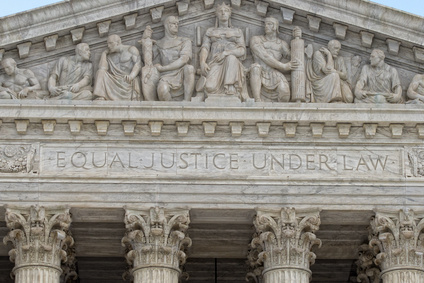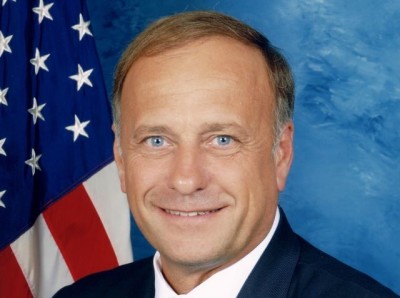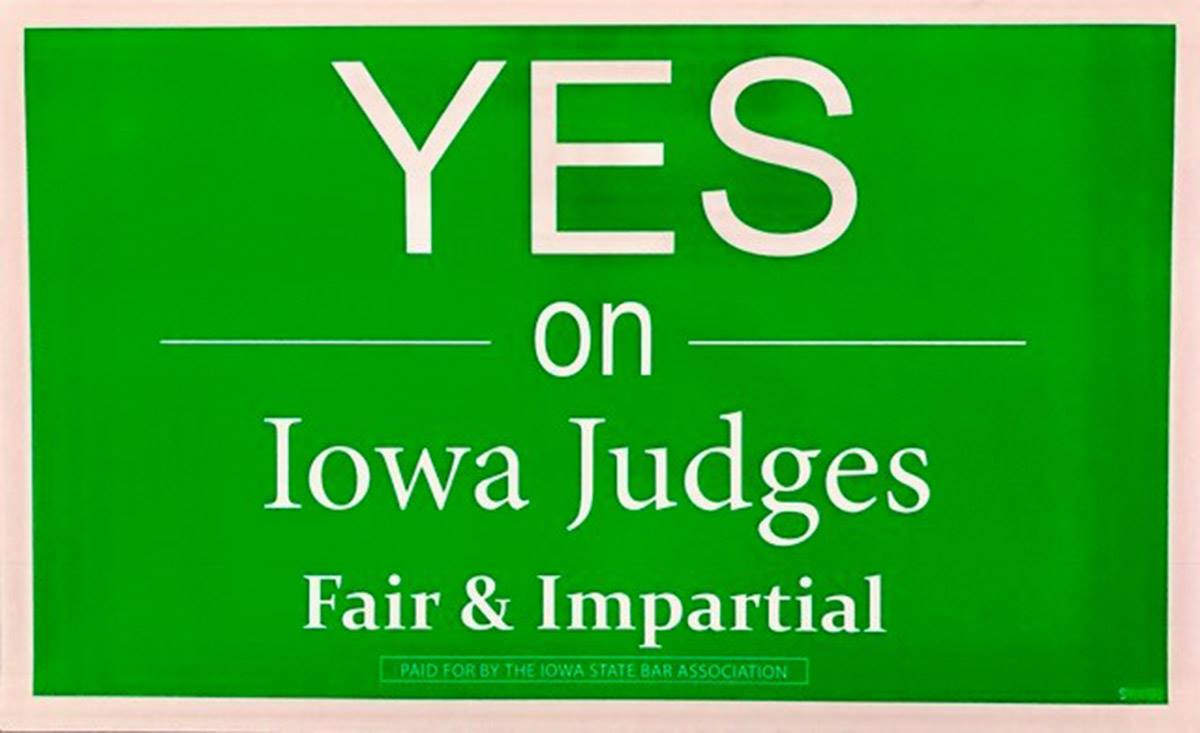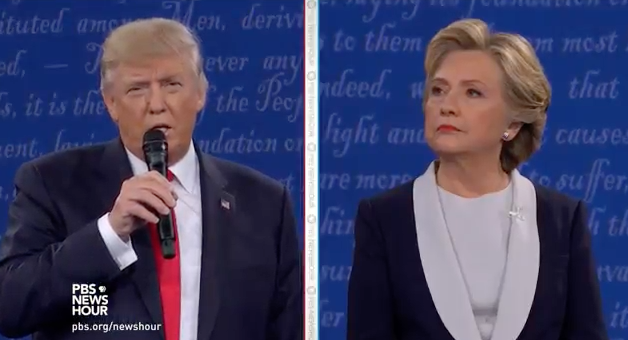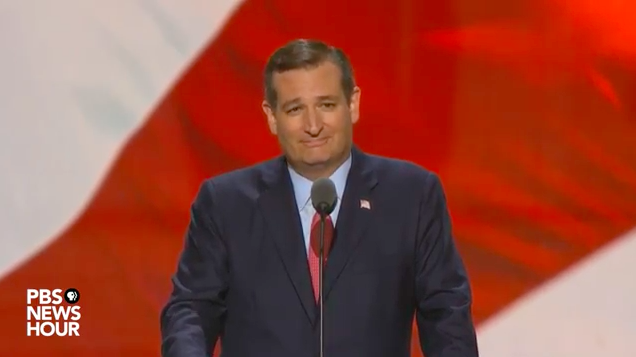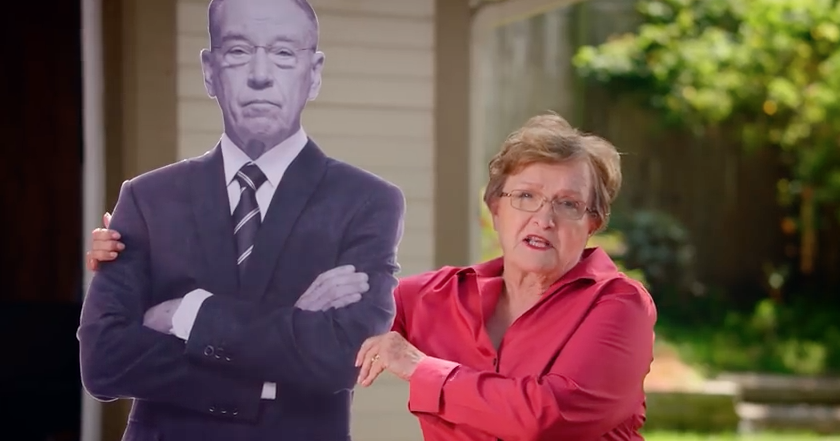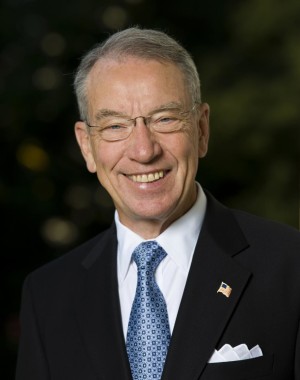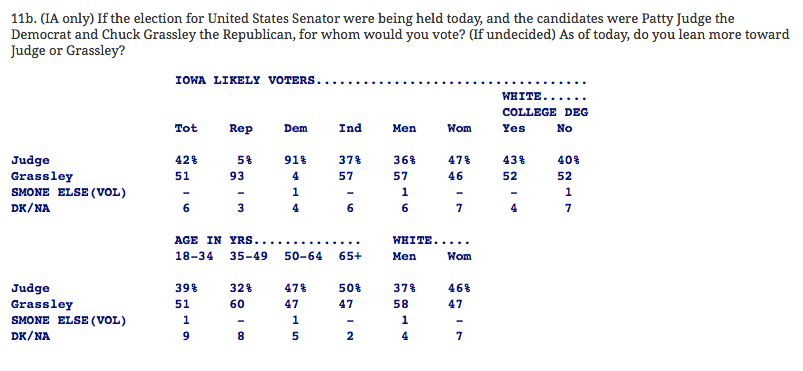As the results of the upcoming Presidential election are impending, much ink – digital and print – and more breath have been spent discussing “The Supreme Court.”
The Supreme Court’s fourth Chief Justice, John Marshall, famously wrote, in Marbury v. Madison (1803), that the United States Supreme Court “emphatically” has “the province and duty . . . to say what the law is.”
When John Marshall wrote that, the number of justices on the United States Supreme Court was set by the Judiciary Act of 1789 at six by the Congress (the Federal legislature) of the United States – the Chief Justice and five associate justices. That is because there is no set number of justices articulated in the United States Constitution. Article III of the United States Constitution governs the powers of the Federal judiciary. Article I of the United States Constitution governs the responsibilities of the Federal legislature, which is the bi-cameral body (the Senate and the House of Representatives) collectively known as the Congress of the United States.
Pursuant to the Judiciary Act of 1869 (16 Stat. 44 (1869)), an act passed by Congress, and currently found at 28 U.S.C. § 1, the number of United States Supreme Court justices is now set at nine.
Prior to 1869, the number had been as high as 10.
Currently, there are eight United States Supreme Court justices due to a vacancy created by the death of Associate Justice, Antonin Gregory Scalia, which occurred nine months ago on February 13, 2016.
The office of the Presidency of the United States is created by the United States Constitution under Article II, regarding the “Executive” branch of government. See U.S. CONST. ART. 2 § 2 cl. 1. Among the constitutional powers of the President is the power – and the duty – to appoint Federal judges. That authority is found at U.S. CONST. ART. 2 § 2 cl. 2 (“He [yes, he – not he or she] shall have Power . . . and by and with the Advise and Consent of the Senate, shall appoint . . . Judges of the supreme court and other Officers of the United States. . . .”).
During this presidential election cycle, the question has come up, again and again, whether the Senate has a co-existing duty to provide “Advice and Consent.” Particularly this year, and particularly in Iowa, this question has been a topic of discussion because Iowa’s own senior Senator, Charles Ernest Grassley, a Republican, is the Chairman of the House Judiciary Committee (the committee that, among other things, presides over hearings on Federal judicial nominees), in a Senate whose majority is currently Republican, and who is running for re-election. Senator Grassley has stated publicly that Merrick Brian Garland – the judge outgoing Democratic President Barack Obama has nominated to fill the vacancy created by Associate Justice Scalia’s death – will not be considered by the Judiciary Committee because President Obama nominated him during an election year.
The truth is, the Senate probably does have a Constitutional duty to consider the Article III judicial nominations made by the President. But, it’s not clear. The Constitution itself, in Article I (the article laying out the make-up and responsibilities of the Senate and the House of Representatives), is silent on the matter. But, under Article II, the article laying out the powers and responsibilities of the Executive Branch of the United States generally, and of the President of the United States particularly, the Constitution gives a duty to the president to nominate and, upon the Senate’s approval, appoint, Federal Judges (defined generally, by Article III, but particularly United States Supreme Court justices).
The Constitution, by virtue of creating the duty in the President, makes some assumption that the Senate, upon being created by Article II, will follow through with acting on the nomination. But again, Article I, which creates the Senate, doesn’t specify how the Senate should handle presidential nominations of judges or anybody else.
To the extent there is some dormant obligation on the part of the Senate to be read in the Constitution, the Senate has ignored it for nearly 200 years. A March 16, 2016 “Fact Check” commentary in The Washington Post called, “Does the Senate have a constitutional responsibility to consider a Supreme Court nomination?” cites President John Quincy Adams’ lame duck nomination of a potential justice in December 1828 – two months after he lost his bid for re-election, three months before his successor, Andrew Jackson, would take office. The Senate ignored the nomination. President Jackson, shortly after his inauguration, nominated the successor, who was later approved by the Senate, and appointed. The Post’s commentary, written by Glenn Kessler, concludes that
Nearly 200 years ago, the Senate made it clear that it was not required to act on a Supreme Court nomination. In periods of divided government, especially with elections looming, the Senate has chosen not to act — or to create circumstances under which the president’s nominee either withdrew or was not considered. Indeed, the patterns don’t suggest the Senate used procedures out of constitutional duty, out of deference for what the Constitution says or what previous Senates have done. Instead they used procedures based on the political circumstances of each confirmation.
Then, of course, there is the situation where Congress is not in session. The President has power under the Constitution to appoint Federal judges when that situation arises. It should not go unnoticed that, since this past February, the Senate has jiggered its individual members’ time such that someone is always, at least, present in Washington, so, technically, the Senate is never in recess.
Judges of the United States Supreme Court, being among the “Officers of the United States,” the President has the power to appoint them while the Senate is in recess, pursuant to by U.S. CONST. ART. 2 § 2 cl. 3, but upon the Senate’s return, the Senate must confirm that appointment by the end of its term – typically meaning, the end of that calendar year. Indeed, Associate Justice William Joseph Brennan Jr. (1956), Associate Justice Potter Stewart (1958) and, perhaps most significantly, Chief Justice Earl Warren (1953), were all recess appointees of President Dwight D. Eisenhower, whose appointments were subsequently confirmed by the United States Senate.
Justice Brennan’s appointment was not only a recess appointment, but a 1956 appointment. Nineteen fifty six was an election year and moderate conservative President Eisenhower was running for re-election. William J. Brennan was a Roman Catholic Democrat, a moderate liberal, and from the northeast. He was, in other words, a superfecta nominee for a Republican President seeking to please those four constituencies that year. At the time, William Joseph Brennan Jr. was serving his fifth year as an associate justice on the New Jersey Supreme Court, following a brief tenure (less than two years) as a New Jersey trial judge.
Associate Justice Potter Stewart was perhaps the first of only two “swing justices” in the United States Supreme Court’s history; the predecessor to Justice Anthony McLeod Kennedy, who is currently an Associate Justice on the Supreme Court.
Earl Warren, governor of California, had run against General Dwight David Eisenhower for the Republican Presidential nomination in 1952. Prior to Eisenhower’s subsequent nomination, young, California Senator, Richard M. Nixon, had publicly endorsed Governor Warren for the Republican Party’s nomination. Nixon – feral, self-serving and despicable always – turned on fellow Californian Warren like Peter to Jesus before the cock crowed, when then-General Eisenhower offered Nixon the vice presidency if Eisenhower were elected.
Consequently, in 1953, Nixon actually had a legitimate reason to be paranoid about Warren’s political retribution. Likewise, then-President Eisenhower owed Warren, big time. Initially, Eisenhower offered Warren the role of United States Solicitor General (whose office argues all Federal appeals to the United States Supreme Court) and promised to follow that up with a Supreme Court appointment once a vacancy arose. Before he could announce his appointment of Warren as Solicitor General, however, a Supreme Court vacancy arose.
As happened most recently when District of Columbia Circuit Judge John Glover Roberts Jr., who had never served as an associate justice of the Supreme Court before being nominated for a Chief Justice slot (Chief Justice William J. Rehnquist having passed away), Earl Warren was appointed by President Eisenhower, not only as a new Supreme Court justice, but to the position of Chief Justice, replacing Chief Justice Fred M. Vinson, who died unexpectedly in 1953.
In 1953, Earl Warren was everything that a Republican President in 2016 would want in a Supreme Court Justice. First, he was a Republican up-and-comer with a solid, conservative background. In any election cycle other than 1952, he probably would have been President of the United States. But in 1952, bolstered by his status as a five-star general in World War II, Dwight D. Eisenhower was the Republican nominee who ultimately won the presidency by huge numbers (442 electoral votes to his opponent, Adlai Stephenson’s 89 electoral votes).
In 1953, Earl Warren was serving his third term as Governor of California. As governor, he had successfully used New Deal financial initiatives to create jobs in California, chiefly through the creation of vast infrastructure initiatives like highways and bridges, and higher education both in terms of advancing scholarship and constructing brick-and-mortar institutions with the expansion of the University of California system with universities, colleges and community colleges.
Prior to becoming California’s longest-serving Republican governor (his tenure in California has only recently been surpassed by current Democratic governor, Jerry Brown, who was previously California governor in the 1970s), Earl Warren had been the state’s attorney general. As attorney general, Warren was responsible for implementing a number of programs Americans now view as loathsome and reprehensible. Perhaps his most unfortunate and enduring legacy was the internment of Japanese immigrants – among them many, many American citizens of Japanese descent – during World War II. Likewise, Warren enforced laws that promoted eugenics in the form of sterilization of Mexicans, Asians and Native Americans – primarily women – in order to have their communities die out so that the state could confiscate their land.
Prior to becoming attorney general, Warren had been a “tough on crime,” “law and order” county attorney for Alameda County, targeting bootleggers and corrupt politicians.
Warren went on, then, to become the Chief Justice who, with a compliment of like-minded jurists from 1953 through his retirement in 1969, ushered in perhaps the most liberal Constitutional case law in the history of the Supreme Court. Right out of the shoot, the Supreme Court ruled on Brown v. Board of Education of Topeka, Kansas, in 1954, and held, unanimously, that separate but equal school systems for Black children and White children were inherently unequal. Brown overturned more than half a century of precedent from its 1896 Plessy v. Ferguson decision to the effect, separate accommodations in every aspect of public life from rail cars to rest rooms, was equal and acceptable.
Likewise, the Warren court, in 1962, decided a case about Congressional redistricting that was so gut wrenching for the justices that one of them, Associate Justice Charles Evans Whittaker, a conservative justice from Missouri who had only been on the Court for six years, recused himself and quit the Court the next year. In that case, the Supreme Court ruled that the Fourteenth Amendment to the United States Constitution afforded equal protection under state legislatures’ redistricting laws. Generally, states re-draw their Congressional districts in order to make them relatively equal in population. They do this by using the United States census. The affect to redrawing Congressional districts is, the interests of the populace change based on how you determine the population. And, as a result of that, state legislatures “gerrymander” the districts, such that, to draw them out on a map, they look like a crazy quilt, because they are rigged to retain a certain party’s power, while fulfilling the obligation to keep the districts relatively equal in terms of population.
But that is a story for another time.
In Baker, the plaintiff was a Tennessee mayor living in an urban district seeking re-election in the late 1950s who noticed that the Congressional districts hadn’t changed since 1901, following the 1900 Federal census. In that half century, the population had shifted from primarily rural to urban, but the district map had not been updated; the district had not been reapportioned. The defendant, Joe Carr, was the Tennessee secretary of state, based on the fact he was officially in charge of conducting free and fair elections. The only question for the court at the time was whether the matter was purely legislative, and the responsibility of the state’s elected officials to sort out, or whether it was something courts could decide.
The Warren Court, split 6-2, with Justice Whittaker abstaining, ruled in Baker that reapportionment was “justiciable:” whether, under Article III, the case was either a “case” or “controversy.” Article III § 2 cl. 2 of the United States Constitution lays out the jurisdiction (what it calls the “judicial power of the United States”) of the United States Supreme Court and “inferior Courts as the Congress may from time to time ordain and establish.” This was a very big deal because, as is just as true today, the dividing line between states’ rights and Federal government intrusion was a major issue. In the ruling, the court went out of its way to list a series of cases that, it said, confirmed that reapportionment was always justiciable. That being said, the question arose, “Why now, then?” The answer, history has shown, is that the Warren court “went there;” all previous courts had begged off.
But that is as far as it went. The Supreme Court’s Baker ruling did not decide whether Tennessee’s Congressional districts were Constitutional; it remanded the case back to the trial court to make that determination.
Until 1964, when the court exercised its newly-proclaimed justiciability over Congressional redistricting, in a case called, Reynolds v. Sims. The question in Reynolds was whether a state’s redistricting of its own legislative districts was unconstitutional under the United States Constitution. There, the Alabama Constitution called for one state senator for every county. Voters in Jefferson County, Alabama – home of the state’s capital, Birmingham, objected to the consequential disparity between the power of their senator, representing a densely populated urban region, and that of any senator from some rural and sparsely populated county.
As in Baker, the apportionment of Alabama counties in Reynolds was based on the 1900 census and a 1901 statute setting forth the rules of redistricting. As in Baker with respect to Missouri, much had changed in those 50 + years, population-wise, in Alabama. In Reynolds, the population variations were so lopsided that when comparing urban and rural counties, the Court found that in some cases, a senator would receive 41 votes in one county for 1 vote received by a senator in another county.
The court was careful in Reynolds to point out that “No effective political remedy to obtain relief against the alleged malapportionment of the Alabama Legislature appears to have been available.” The court was obviously still concerned about the impression the Federal judiciary (nine unelected judges) was forcing its preferences onto the people (judicial activism). It observed that, in order to change the redistricting in Alabama, there had to be a constitutional amendment and constitutional amendments in Alabama could only occur through a 3/5 majority of legislators agreeing to one, followed by a simple majority vote of the people or, by means of a constitutional convention called after a simple majority of the popular vote, and approved by a majority of senators and house legislators. The senators and house members, having obtained their seats through the lopsided system created in 1901, were not likely to change anything.
Ultimately, the court found that the system was unconstitutional under the 14th Amendment’s equal protection clause, and that the constitution required a system to permit a proportional, one person-one vote, plan. The court wrote, as follows:
History indicates, however, that many States have deviated, to a greater or lesser degree, from the equal-population principle in the apportionment of seats in at least one house of their legislatures, So long as the divergences from a strict population standard are based on legitimate considerations incident to the effectuation of a rational state policy, some deviations from the equal-population principle are constitutionally permissible with respect to the apportionment of seats in either or both of the two houses of a bicameral state legislature. But neither history alone, nor economic or other sorts of group interests, are permissible factors in attempting to justify disparities from population-based representation. Citizens, not history or economic interests, cast votes. Considerations of area alone provide an insufficient justification for deviations from the equal-population principle. Again, people, not land or trees or pastures, vote. Modern developments and improvements in transportation and communications make rather hollow, in the mid-1960’s, most claims that deviations from population-based representation can validly be based solely on geographical considerations. Arguments for allowing such deviations in order to insure effective representation for sparsely settled areas and to prevent legislative districts from becoming so large that the availability of access of citizens to their representatives is impaired are today, for the most part, unconvincing.
Voting rights was a major civil rights issue in 1964, as they continue to be today, 52 years later. But it took the Warren court to break through a century of states running amok with voting schemes that disenfranchised voters. One of the important issues Hillary Clinton raised during the second Presidential debate was voter disenfranchisement.
Aside from voting rights, the Warren court declared in Gideon v. Wainwright (1963) that the Fifth and Sixth Amendments to the United States Constitution afforded indigent Federal prisoners the right to defense counsel paid for by the Federal government. And, in 1968, the Warren court ruled, in Miranda v. Arizona, that a criminal suspect must have his rights explained to him before being interrogated by law enforcement officials – especially the right to remain silent, because anything said can, and will, be used against that suspect.
This level of Constitutional analysis resulting in such a sweeping installment of rights to so many people in such a brief, 16 year period, is viewed by many as unprecedented since Chief Justice Marshall articulated the power of the Federal courts and, in particular, the Supreme Court.
As will be discussed in subsequent installments, there are several questions about the outcome of the 2016 Presidential campaign as it relates to the Supreme Court as a body, and as it relates to the individual justices as legal scholars. As I have just demonstrated, Chief Justice Earl Warren turned out to be the polar opposite of what President Eisenhower would have wanted, much less expected, from the hard-as-nails/law and order California governor and attorney general that Warren had been before presiding over the United States Supreme Court.
Just as clearly, and as demonstrated prior to the recent appointments of Associate Justices Sonia Maria Sotomayor and Elena Kagan, a block of justices appointed by Presidents of a certain political ideology can affect the types of cases, and the outcomes of cases, coming before the Supreme Court.
Over the next four, and potentially eight, years, the next president is likely to replace up to four justices on the United States Supreme Court – two of them (Associate Justices Ruth Bader Ginsburg and Stephen Gerald Breyer), appointees of Democratic, politically moderate, President William Jefferson Clinton and two of them (Associate Justices Antonin Gregory Scalia and Anthony McLeod Kennedy), appointees of Republican, politically conservative, President Ronald Wilson Reagan.
Sometimes, as in the case of the period Chief Justice Earl Warren presided over the Court, that can mean a great deal. Other times, like the past 37 years since Chief Justice Warren retired, and that sesquicentennial period between Chief Justice John Marshall’s 1803 Marbury v. Madison opinion and the commencement of Chief Justice Warren’s term on the Supreme Court began in 1953, it hasn’t seemed to matter much at all.
Continue Reading...



